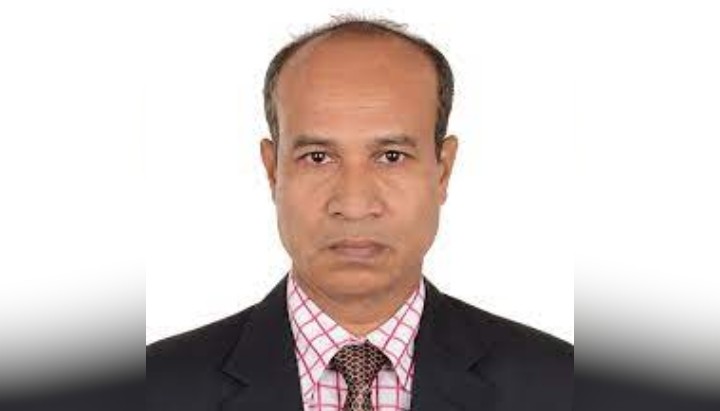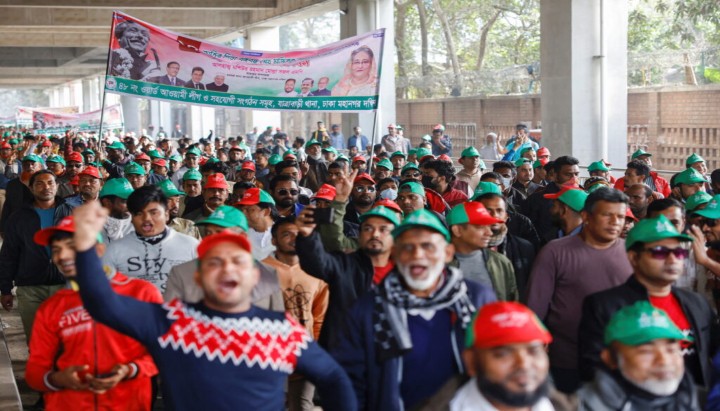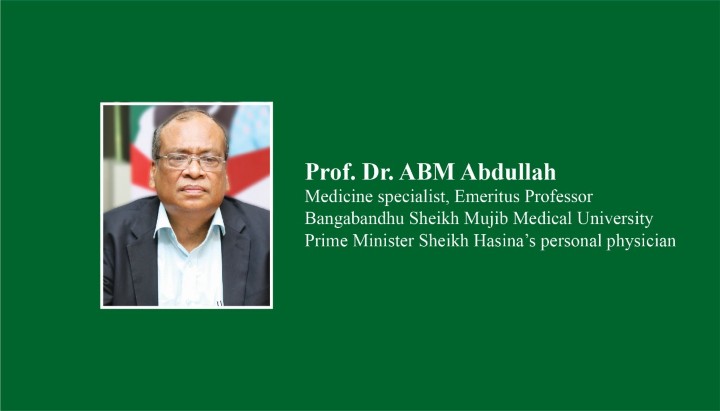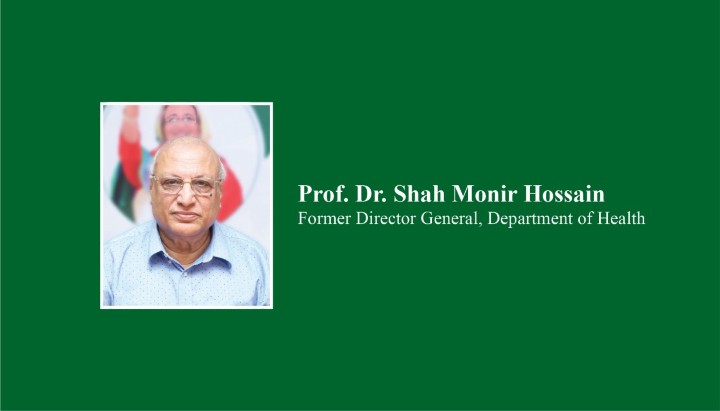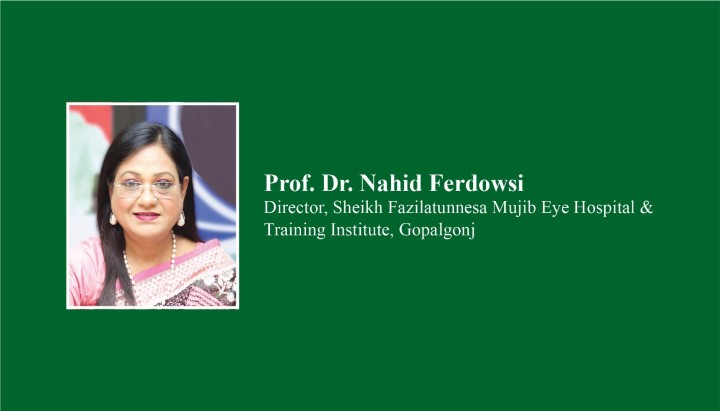Bangladesh Prime Minister Sheikh Hasina is reveling in her golden era. Having already held four terms with thumping mandates, she retains the laurel of the globe’s longest-serving female head of government. Her win in January, which secured her fifth term in office, has elicited a barrage of plaudits from almost all quarters in the region. Hasina presents the rare case where both rival Asian powers China and India agree on the benefits of her place at the helm. Regional powers, irrespective of ideological and political leanings, rushed to congratulate her incoming administration. However, most eyes after the January election were fixed on the United States, given its vocal democracy promotion efforts in Bangladesh as of late. While the US State Department did say that the elections were not free or fair, US officials recognized the new government and pledged to collaborate with it going forward. With the US weight lifted, Hasina’s ship now looks to be sailing in smooth seas.
Yet, some argue, that election was widely boycotted. The two principal arguments underlying this claim are that the opposition parties boycotted the election and that Bangladeshis resoundingly rejected the poll in solidarity with the opposition’s call to boycott.
Participation or boycott?
While the major opposition Bangladesh Nationalist Party (BNP) and its allies did sit out the election, not all opposition parties followed suit. Out of forty-four registered parties, twenty-seven fielded candidates. Additionally, nearly 1,900 independent candidates threw their hats in the ring for three hundred parliamentary seats. So, while the BNP’s absence resounded, reasonable multiparty competition and voter choice still transpired across multiple constituencies.
The official voter turnout reached 41.8 percent—a lower figure than in Bangladesh’s last contested election, albeit not an unprecedented low. Some see this low turnout as one indication that the opposition’s boycott reflected popular sentiment. The opposition boycott undoubtedly dampened some voter turnout. However, low participation does not necessarily indicate a blanket public rejection of the polls owing to opposition exhortations. In the run-up to the vote, the BNP’s anti-election protests degenerated into a violent crusade. BNP loyalists were found to be complicit in torching hundreds of vehicles. The BNP called for forty-eight hours of nationwide strikes and blockades on the eve of voting day. Arsonists set fire to polling booths and a train, killing four. This prevailing climate of trepidation likely caused some voters to stay at home on election day. Expanding absentee balloting could be a solution, but barring some exceptions, average citizens cannot vote by mail. Crucially, expats, who account for 10 percent of all voters, were effectively disenfranchised.
More tellingly, in constituencies where robust, competing candidates vied for seats, voter turnout topped 60 percent, suggesting genuine electoral contests did mobilize voters. Conversely, anemic turnout in some constituencies seems to have stemmed from lack of competition, not voters boycotting the election outright in solidarity with the BNP.
Confusion persists, however, over the Election Commission’s reported voter turnout statistics. The Commission initially announced a 27 percent turnout rate at its afternoon press briefing, later announcing a 41.8 percent final turnout. The Election Commission said that the lower afternoon figure was not in real time; it did not yet reflect delayed updates from all polling centers. Since Bangladesh uses a manual paper ballot system, where votes are hand counted and tallied, there were a few hours of lag in transmitting results from rural areas. This lag could explain the gap between the afternoon number and the final announced turnout. In that case, it is not true that 14 percent of the total votes would have had to have been cast in the final hour for the final given turnout to be accurate, as some commentators have stated.
And perhaps the Election Commission is right. But with the seeds of doubt sown, the Election Commission could help resolve any lingering doubts by publishing a detailed breakdown of hourly vote counts from all polling stations. Such transparency would provide definitive clarity on the turnout question that confused some observers.
Is Bangladesh a one-party state?
As Bangladesh charts its course following another landslide election victory for the ruling Awami League (AL), some critics warn that the country is sliding toward effective one-party rule. With AL sweeping 223 seats and its loyalist independents winning 62 more—making 95 percent of elected members broadly aligned with the ruling party—they argue that no meaningful opposition exists in parliament.
But there are a couple of problems here. First, dismissing independent members of parliament simply as AL lapdogs overlooks intricacies within Bangladesh’s political landscape. All independents prevailed after intense electoral combat with AL candidates. They will enjoy unchecked freedom to wield their votes and voices in the parliament. Article 70 of Bangladesh’s constitution prohibits members of parliament from voting against their party. But as independent candidates lacking formal party affiliation, they are immune from this restriction. In this context, the AL merits praise for taking affirmative steps to foster electoral competition and pluralism, despite lacking a formidable challenger. The AL, by allowing senior party figures to compete as independents, certainly risked potential intraparty discord. Yet, it prioritized providing voters with genuine electoral alternatives and widening the diversity of voices in parliament.
Additionally, a party achieving an overwhelming parliamentary majority through an electoral process does not equate to a one-party state. In the past, the AL and the BNP have held similar supermajorities without making Bangladesh a one-party state. Similarly, India and Japan have experienced one-party dominance without losing multiparty democracy. The key question is whether the AL orchestrated this supermajority parliament or if it was an inevitable outcome given the BNP’s election boycott.
The BNP would argue the former—that there was never a level playing field and that the crackdown and mass arrest of BNP leaders after the October 28 rally precluded any chance of a fair election, deterring their participation. However, even by October 28, the BNP had already rendered itself irrelevant to the polls by refusing participation. The October 28 protest sought to obstruct an election to called by the Election Commission in mid-November. Thus, law enforcement—at that point under the Commission’s authority—used force to halt the turmoil and ensure the election proceeded. Therefore, the state’s response to the rally should not be construed as barring the BNP’s electoral participation. The disproportionate use of force merits separate evaluation, but it is better viewed through a law-and-order lens rather than an electoral one.
Accountability starts with showing up
Rather than making alarmist claims of creeping authoritarianism, observers should have asked why the primary opposition, the BNP, forfeited the field. Just as the government warrants scrutiny for proportionality of force, the BNP should be held accountable for executing its democratic duties.
As a major political party representing 170 million people, the BNP had a duty to give voice to voters in parliament. By boycotting the election over hypothetical unfairness, they severely undermined democratic processes and disregarded people’s right to meaningful electoral choice. Even if the BNP’s claims are taken at face value that elections under the AL have no precedent of being free and fair, the demand to reinstate a caretaker government still lacks foundation. Bangladesh’s supreme court ruled it unconstitutional in May 2011. Moreover, the previous caretaker system overstayed its mandate, invoked a national emergency, and imprisoned leaders across party lines.
The boycott only assisted the incumbent AL. This squandered the chance for punitive international actions and domestic resistance had the BNP participated and electoral fraud still demonstrably occurred. As such, one could conclude that the BNP pinned higher hopes on spurring a constitutional crisis amid caretaker rule than pursuing a public mandate through elections. Through this self-defeating gambit, the BNP catapulted the AL into power, even as questions linger over the ruling party’s commitment to democratic fairness.
Gautam Lahiri is the president of Press Club of India. He served as Bangladesh as an independent foreign observer of the 2024 general elections in Bangladesh.




